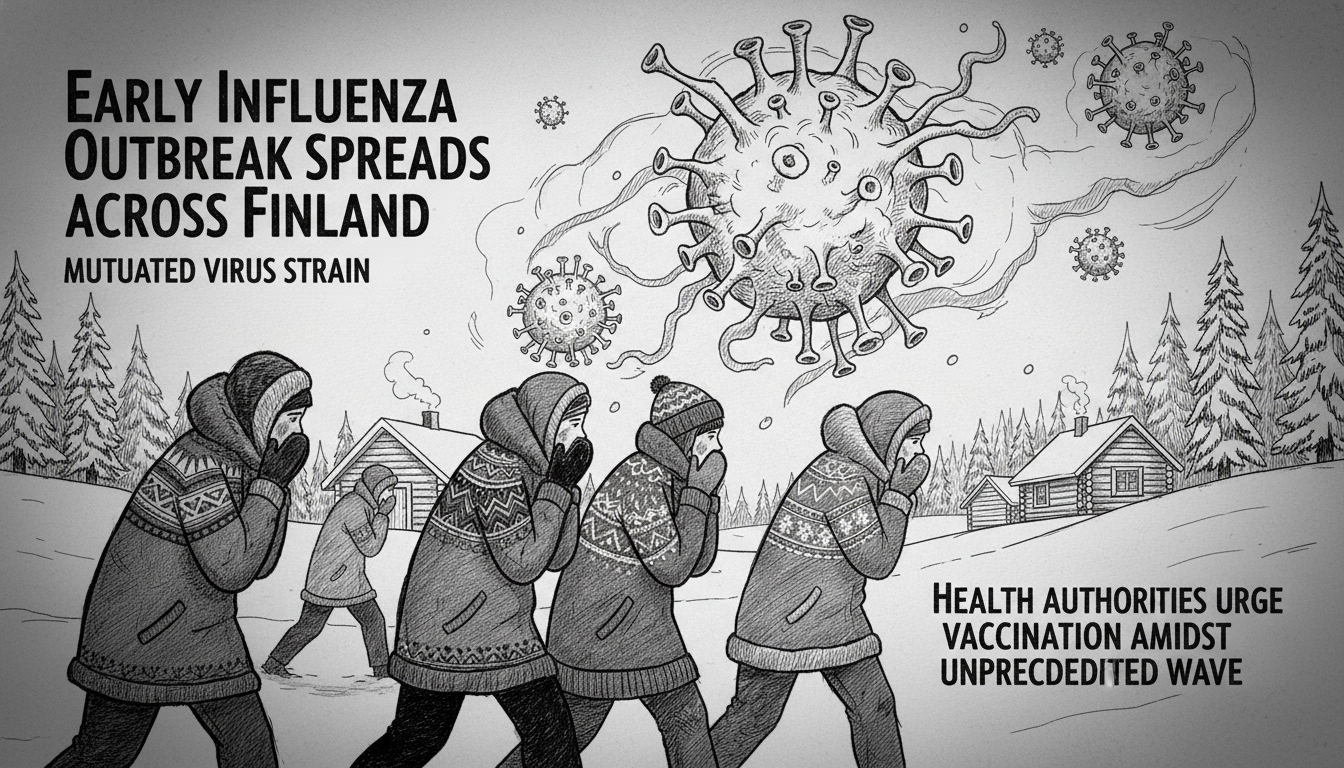Finland faces an unusually early influenza season with a mutated H3N2 virus circulating nationwide. The Finnish Institute for Health and Welfare confirms 870 laboratory-verified influenza A cases this autumn, representing a fivefold increase compared to the same period last year. This dramatic surge signals the influenza season commencing exceptionally early across Finnish regions.
Leading expert Niina Ikonen from the national health authority warns the epidemic threshold may be crossed within coming days. She notes that while testing volumes might have increased this autumn, the case numbers clearly indicate accelerated viral transmission. The mutated H3N2 virus structure differs from the vaccine composition used in Finland, potentially reducing vaccine effectiveness.
Chief physician Hanna Nohynek emphasizes vaccination remains the best protection against influenza despite potential reduced effectiveness. She explains that even when vaccine protection against infection isn't optimal, vaccination often maintains better protection against severe disease through cross-protection mechanisms. The European Centre for Disease Prevention and Control joins Finnish authorities in recommending immediate vaccination for risk groups.
Current vaccination coverage shows 22 percent among children under seven and 46 percent among seniors over sixty-five. Health officials urge all recommended groups to get vaccinated without delay, noting that vaccine protection develops within approximately two weeks. The early season pattern follows global observations with multiple countries reporting unusually early influenza activity.
Historical context reveals influenza epidemics accelerated following the coronavirus pandemic, with peak weeks initially occurring around year-end before returning to traditional February-March timing last winter. This year's early detection doesn't necessarily predict an early epidemic peak, as case numbers might remain moderately low for extended periods before rapid escalation.
The World Health Organization's expert group makes annual February recommendations for vaccine virus selection. Last February's assessment couldn't predict the strong spread of mutated H3N2 viruses since these variants hadn't yet been observed. This timing gap between vaccine production and viral evolution represents an ongoing challenge in influenza prevention.
Finnish healthcare providers have influenza vaccinations available nationwide. The health authority recommends vaccination for all children under seven, seniors over sixty-five, pregnant women, risk group individuals, military conscripts, social and healthcare personnel, long-term facility residents, and close contacts of particularly vulnerable individuals.

